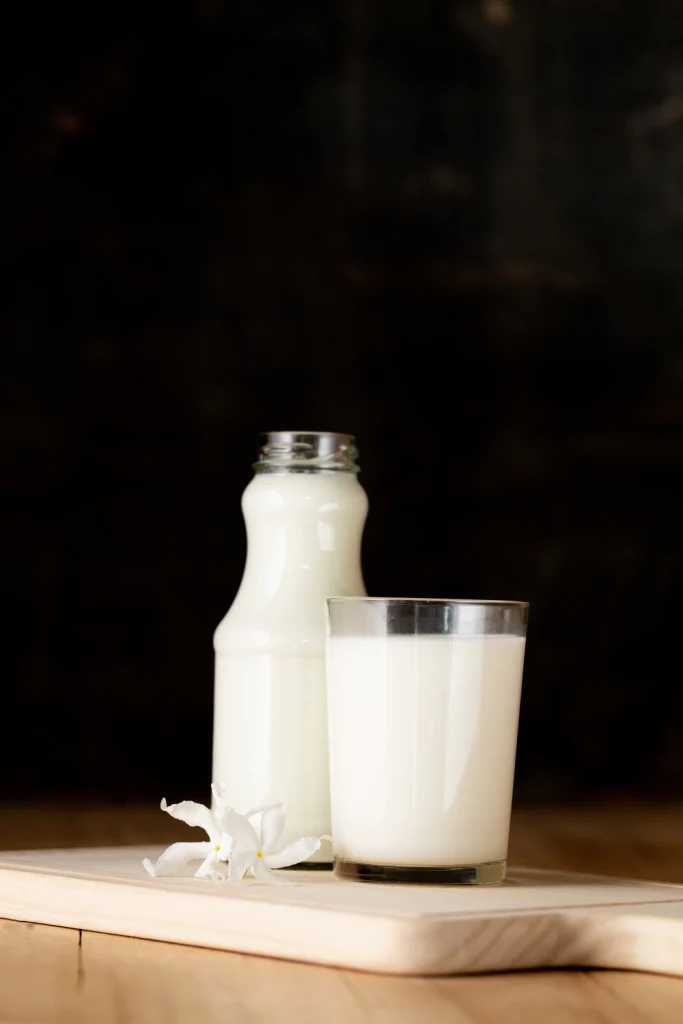Lactose is a type of sugar found in milk and dairy products. Individuals with lactose intolerance experience digestive issues after consuming food or beverages that are containing lactose. But, can lactose intolerance be cured?
Understanding Lactose Intolerance
Lactose intolerance is a digestive disorder when your body cannot digest lactose. Normally, ingested lactose is broken down and absorbed in the small intestine.
In individuals with lactose intolerance, the body doesn’t produce enough lactase enzymes. As a result, lactose cannot be fully digested and enters the large intestine.
Causes of Lactose Intolerance
Lactose intolerance is caused by a deficiency or absence of the lactase enzyme in the digestive tract. Lactase is a digestive enzyme responsible for breaking down lactose.
Lactose intolerance can be caused by various factors, including:
1. Genetic or Hereditary Factors
Family history often indicates a presence of lactose intolerance. The production of lactase enzyme decreases with age. The symptoms typically emerge during adolescence or early adulthood.
2. Gastrointestinal Diseases
Injuries or diseases affecting the gastrointestinal tract can disrupt the production of the lactase enzyme. Conditions leading to lactose intolerance include Crohn’s disease, celiac disease, and infections by viruses, bacteria, or parasites.
3. Premature Birth
Infants born premature may have underdeveloped intestines, resulting in insufficient lactase enzyme production. This condition often improves as the child grows and the intestines develop.
4. Congenital Disorders
In rare cases, individuals may be born without the ability to produce the lactase enzyme.
Symptoms of Lactose Intolerance
When individuals with lactose intolerance consume lactose-containing food or beverages, the undigested lactose enters the large intestine. In the large intestine, lactose interacts with microorganisms, therefore producing gas.
Symptoms of lactose intolerance usually appear 30 minutes to 2 hours after consuming lactose-containing products and may include:
- Diarrhea
- Abdominal bloating
- Abdominal pain
- Nausea
- Vomiting
The severity of symptoms varies among individuals based on many factors such as the amount of lactose consumed, the presence of lactase enzymes in the intestines, and the microorganisms in the digestive tract.
Can Lactose Intolerance Be Cured?
As of now, there is no treatment to stimulate the body’s production of lactase enzymes.
Therefore, lactose intolerance caused by genetic factor cannot be completely cured. Treatment involves minimizing symptoms by avoiding products that are containing lactose.
Lactose intolerance resulting from digestive diseases may improve once the underlying condition is treated. The symptoms usually resolve within a few weeks.
Diet Tips for People with Lactose Intolerance
Those with lactose intolerance should select their food carefully. Some diet tips for lactose intolerance include:
1. Avoid foods and Beverages that are Containing Lactose
To avoid digestive issues due to lactose intolerance, you have to steer clear of foods and drinks containing lactose, such as:
- Cow’s milk and goat’s milk
- Processed dairy products like cheese, butter, ice cream, and yogurt
- Bread, biscuits, cakes, and other foods that use cow’s milk as one of the ingredients
2. Choose Lactose-Free Alternatives
Opt for lactose-free or low-lactose substitutes, including plant-based milk alternatives like lactose-free milk
3. Take Lactase Supplements
Consider taking lactase supplements before consuming dairy products. Consult a doctor or healthcare professional before taking supplements into your routine.
Arummi’s Recommendation: Lactose-Free Cashew Milk for Lactose Intolerance
If you’re looking for a lactose-free milk, cashew milk from Arummi is a good choice. Arummi’s cashew milk is lactose-free and can be a best choice for you. Let’s get Arummi products at nearest supermarket in your town!









































